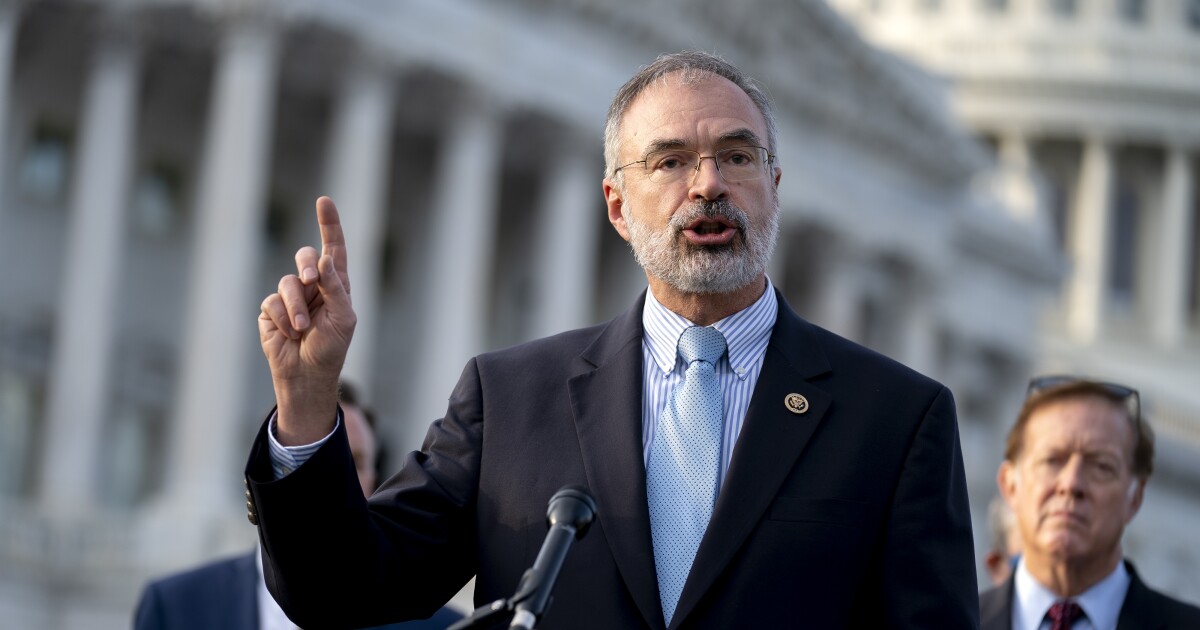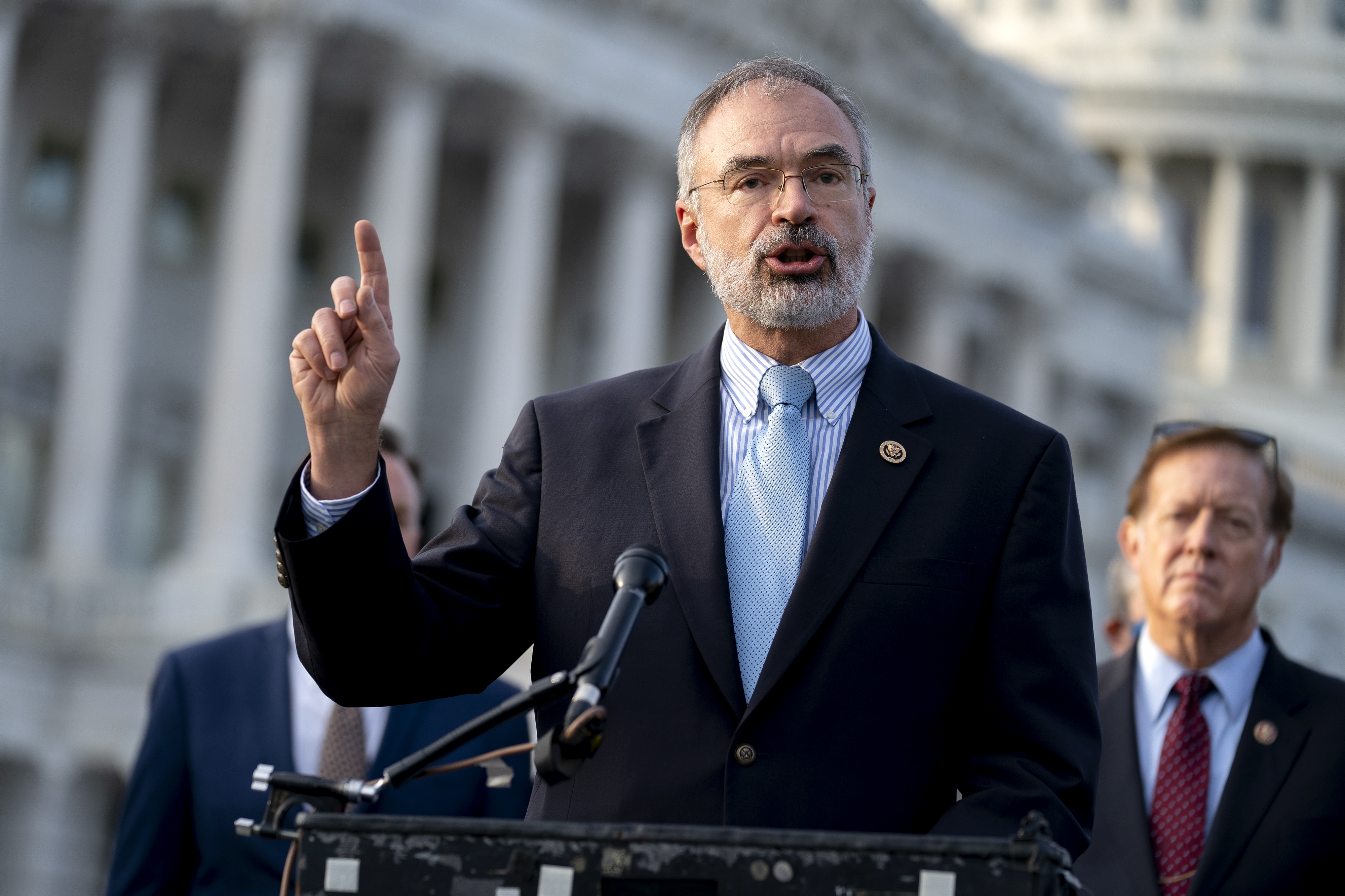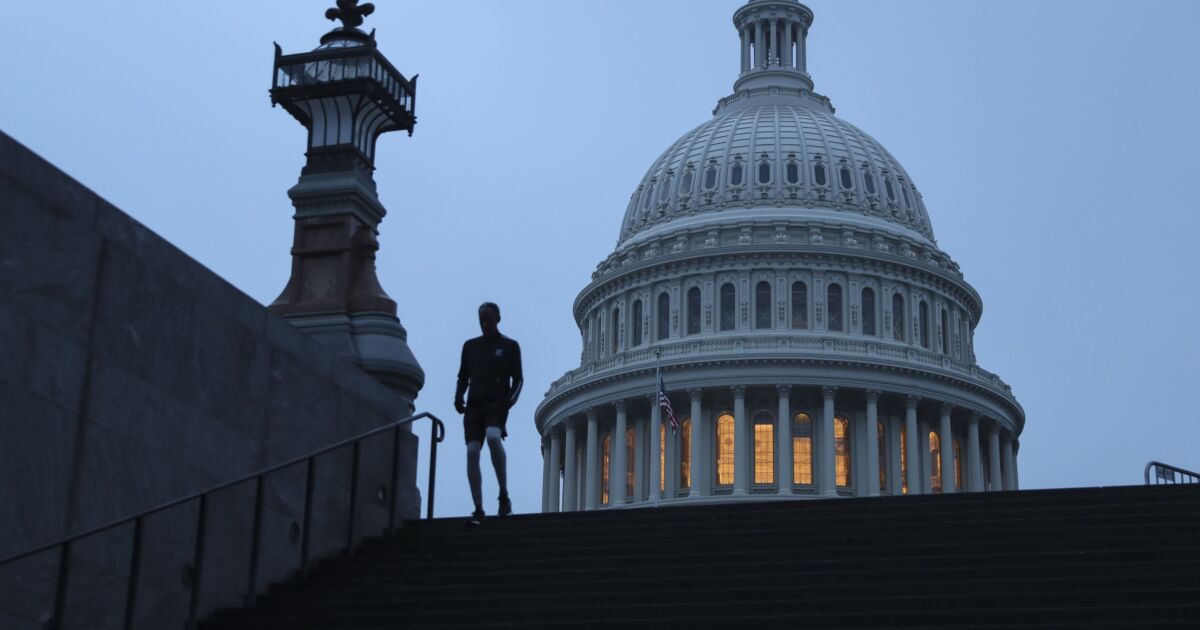Harvard University sued several U.S. agencies and top officials for freezing billions of dollars in federal funding, significantly ratcheting up a high-stakes showdown with the Trump administration.
The government unlawfully suspended Harvard’s funding after it refused to comply with “unconstitutional demands” to overhaul governance, discipline and hiring policies, as well as diversity programs, lawyers for the university argued in a lawsuit filed Monday in federal court in Massachusetts. The Trump administration has accused the nation’s oldest and richest university of failing to combat antisemitism on campus.
“Over the course of the past week, the federal government has taken several actions following Harvard’s refusal to comply with its illegal demands,” the university’s president Alan Garber said. “We filed a lawsuit to halt the funding freeze because it is unlawful and beyond the government’s authority.”
In a statement on the university’s website, Garber cited the government’s pause in federal funding, threats to block an additional $1.1 billion in grants, a crackdown on foreign students, and the possible revocation of Harvard’s tax-exempt status.
The White House is pushing for sweeping changes at the most elite U.S. universities, and has frozen or is reviewing federal funding to Princeton, Cornell, Northwestern and Columbia universities. At Harvard, the government halted $2.2 billion of multiyear grants on April 14, claiming the school failed to enforce civil rights laws to protect Jewish students.
Harvard’s lawsuit claims that the funding freeze violates its First Amendment guarantee of free speech and the Administrative Procedures Act. It asks a judge to bar the U.S. from freezing the funding and declare the government’s actions unconstitutional.
“The government has not — and cannot — identify any rational connection between antisemitism concerns and the medical, scientific, technological, and other research it has frozen that aims to save American lives, foster American success, preserve American security, and maintain America’s position as a global leader in innovation,” the lawsuit claims.
The White House and the Education Department didn’t immediately respond to a request for comment.
Education Secretary Linda McMahon on Tuesday morning emphasized that the government’s actions were designed to protect students’ civil rights rather than infringe on universities’ free speech. She said she hopes Harvard comes back to the table, signaling there may be a path to deescalating the situation.
“We remain open to talking to Harvard, but they responded by filing a lawsuit,” McMahon said in an interview on CNBC.
Trump escalated his fight with Harvard after the school refused to bow to his administration’s demands. Since threatening its funding, Trump suggested the Internal Revenue Service should tax the university as a “political entity,” a move that would significantly hit the school’s finances and make it harder to raise money from wealthy donors.
Government demands
The showdown began last month when the government threatened about $9 billion in federal funding to Harvard. Days later, the administration demanded that Harvard remake its governance, transform admissions and faculty hiring, stop admitting international students hostile to US values and enforce viewpoint diversity.
The government also called for scrapping any hiring preferences based on race or national origin, adopting a broad ban on masks and adding oversight for “biased programs that fuel antisemitism.”
Harvard rejected those demands on April 14, saying it “will not surrender its independence or relinquish its constitutional rights” and that a private university “cannot allow itself to be taken over” by the U.S. government.
McMahon said on CNBC that the demand letter to Harvard was a “point of negotiation” and that she had hoped the university would “come back to the table.”
As part of its legal team, Harvard has hired two conservative lawyers with connections to the Trump administration — William Burck and Robert Hur. Harvard also tapped a lobbying firm, Ballard Partners, where Trump’s chief of staff used to be a partner. The school also named John Manning, a conservative lawyer, as its permanent provost, the second-most powerful leadership role at the university.
“The government has only ratcheted up cuts to funding, investigations and threats that will hurt students from every state in the country and around the world, as well as research that improves the lives of millions of Americans,” the complaint claims.
The school has a $53 billion endowment but that money is restricted in how it can be spent, meaning the university relies on federal funding. Without that support, the school said in its complaint, it will be forced to either reduce or halt ongoing research projects and terminate employment contracts with researchers, staff and administrators, or make other cuts to departments or programs.
Campuses across the U.S. were roiled by protests after Hamas, which the U.S. considers a terrorist organization, murdered 1,200 Israelis and took more than 200 hostages in October 2023. Israel’s retaliation against Hamas in Gaza has killed more than 48,000 Palestinians, according to the Hamas-run health ministry.
Other university leaders, including Princeton’s, have expressed support for Harvard’s stance, but they also face pressure from the White House. The administration has already canceled $400 million in federal money to Columbia University and frozen dozens of research contracts at Princeton, Cornell and Northwestern universities.
“All told, the tradeoff put to Harvard and other universities is clear: allow the government to micromanage your academic institution or jeopardize the institution’s ability to pursue medical breakthroughs, scientific discoveries and innovative solutions,” Harvard argued in its lawsuit.
Presidents of some of the most prestigious universities and small colleges signed a joint letter opposing “undue government intrusion in the lives of those who learn, live, and work on our campuses,” according to a statement from the American Association of Colleges and Universities, a trade group.
“As leaders of America’s colleges, universities and scholarly societies, we speak with one voice against the unprecedented government overreach and political interference now endangering American higher education,” according to the letter, signed by leaders of schools including Princeton, Amherst College and the Massachusetts Institute of Technology.
Harvard named several cabinet secretaries as defendants in the lawsuit, including Robert F. Kennedy Jr., whose agency, Health and Human Services, funds the most research, as well as other agencies including the Department of Defense and the National Aeronautics and Space Administration.
The case is President and Fellows of Harvard College v. U.S. Department of Health and Human Services et al, 25-cv-11048, U.S. District Court, District of Massachusetts (Boston).


 Technology1 week ago
Technology1 week ago
 Personal Finance1 week ago
Personal Finance1 week ago
 Blog Post1 week ago
Blog Post1 week ago
 Economics1 week ago
Economics1 week ago
 Personal Finance1 week ago
Personal Finance1 week ago
 Personal Finance1 week ago
Personal Finance1 week ago
 Personal Finance6 days ago
Personal Finance6 days ago
 Economics1 week ago
Economics1 week ago












